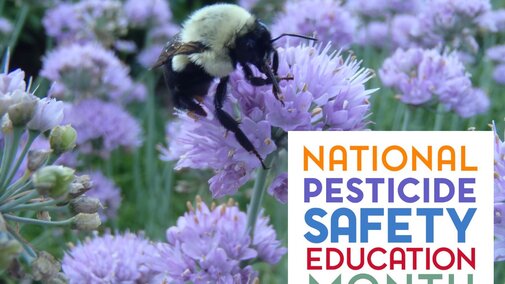Say “pesticides,” and what comes to mind? Perhaps weeds, drift, disease, termites, rats? What about bees, flowers, vegetables, health or protective clothing? Or, profitability, calibration, endangered species, labels, certification/licensing?
Our job at the Nebraska Extension Pesticide Safety Education Program is to educate and train the state’s 29,800+ applicators while using both general use and restricted use pesticides. We address health, the environment and economic well-being, as well as pesticide safety. We are able to do this thanks to Nebraska Extension educators statewide who provide local on-site training, PSEP online training programs, and the just-completed Crop Production Clinics, and the Nebraska Crop Management Conference.
We help keep applicators safe. In 2019, only 2 percent of applicators responding to surveys reported having pesticide exposure, most through skin contact and/or breathing. We’ll continue working to bring that percent even lower, in part by emphasizing the importance of wearing personal protective equipment. Increasingly, this includes respirators.
The more we learn and know, the more complex is our goal. Working closely with the Nebraska Department of Agriculture, we keep current on federal and state rules and regulations, both enforced and tentative. We strive to keep up with new products, label changes and their ever-increasing lengths; and we continually update PSEP resources so applicators may become legally certified or recertified. Among our scores of educational resources are publications and videos. And in 2019, PSEP made major strides in developing a library of new digital FlipBooks.
Available now through PSEP’s new online store, FlipBooks are the most recent development for commercial/noncommercial applicators to obtain their initial, or first-time, certification in one or more categories, plus the core competencies required of all commercial/noncommercial applicators. FlipBooks offer video plus text viewed at the user’s convenience for one year. At a cost of $40 to 60, FlipBooks are a cost-savings compared to the print/pdf manuals that also require on-site video training. See a free FlipBook sample.
Who are our clientele? In 2019 we provided education for 6,000 private applicators (typically ag producers); and for 3,100 commercial/noncommercial applicators (people who hire out for pesticide application, or as part of their job for a governmental entity. Examples include lawn care providers, pest control personnel, grain bin fumigators, and those treating aquatic areas and rights of way).
Clientele responding to 2019 PSEP training surveys tell us from on-site programs, 90 percent or more of responding private and/or commercial/noncommercial applicators say they are knowledgeable or very knowledgeable about how to:
- safely store, handle, apply pesticides
- use drift reduction nozzles or increased knowledge about drift prevention
- wear PPE
- make applications according to the label
- take appropriate steps to prepare for pesticide spills
- develop a long-term pesticide resistance management plan
- read/comply with the label
The only constant is change, therefore our work never stops. May your 2020 be safe and rewarding!
Nebraska Extension PSEP educational inventory (pested.unl.edu) includes:
- 19 commercial/noncommercial manuals
- 19 digital FlipBooks for initial commercial/noncommercial applicators, new in 2020
- 19 initial videos
- 19 recertification videos
- 27 NebGuides/Extension Circulars
- Major contributor to the Weed, Disease, and Insect Management Guide (EC130)
- Online dicamba training - free
- Online Private Applicator Training
- Promoting paraquat safety
- Record-keeping form updates
- Label exercise update
- Flickr
- Youtube

